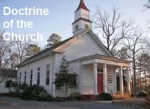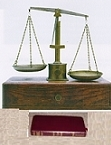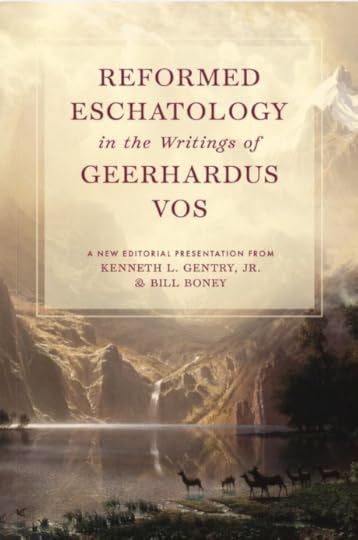PROPER COMMUNION (1)
PMW 2024-081 by Kenneth L. Gentry, Jr.
INTRODUCTION

For the postmillennial hope to progress in this fallen world, the church needs to get her act together. We need a new Reformation. Contemporary worship has declined to such a deplorable level that her offering cheap entertainment rather than devout worship has diminished her influence in God’s world. One area (among many) wherein the church needs to return to her biblical standards is in the partaking of communion, i.e., the Lord’s Supper.
I will be offering a five-part study of the matter of “Proper Communion” as my contribution to this area of much need reformation. I hope you will follow me through this important study.
When I was pastoring and we celebrated the Lord’s Supper I made the following formal statement, which along with the minister’s personal call for participants to examine themselves, represented our method of fencing the Lord’s Table in the exercise of communion:
“We invite to the Lord’s Supper all who are believers in Christ, who are baptized members in good standing of an evangelical church, and who have been formally approved by church officers of an evangelical church to take communion.”
This formal fencing statement basically consists of a four-fold requirement. It requires that anyone who partaking of the Lord’s Supper must be:
1. a believer in Christ
2. baptized in his name
3. a member in good standing of an evangelical church
4. formally admitted to the Lord’s Table by ordained church officers of an evangelical church.
 Christ’s Church (20 mp3 downloads)
Christ’s Church (20 mp3 downloads)
by Ken Gentry
An in-depth sermonic presentation of the doctrine of the church. This is vitally important today with the evangelical church not living up to its biblical calling
See more study materials at: www.KennethGentry.com
OUR FENCING INQUIRY
I formulated this statement based on the Scriptures as our ultimate authority and the Westminster Standards as our secondary authority. Though other issues will necessarily be drawn into our study, the two foundational questions that this paper will consider are:
1. Why should we fence the Lord’s Table?
2. How shall we fence the Lord’s Table?
As we engage the questions before us we should recognize that the sacraments must be set in the larger context of ecclesiology (the doctrine of the church). Our fencing inquiry is not a simple question that can consider the sacrament in the abstract. Rather it is a complex matter involving several issues of wider biblical, theological, and practical significance. Our study will therefore involve the following issues:
• The visible-invisible church distinction.
• The necessity, legitimacy, function, and power of church officers.
• The legitimacy of church discipline.
• The importance of and obligation to formal church membership.
• The nature of the sacrament.
• The relationship of the new covenant sacrament to those of the old covenant.
• The spiritual danger of abusing the sacrament.
• The inescapable necessity of fencing.
Our historical setting
Self-consciously Reformed churches recognize that our theological heritage holds a high view of ecclesiastical government. Indeed, the word “presbyterian” derives from the Greek word presbuteros, which is generally translation “elder” in the New Testament (e.g., Acts 14:23; 15:4; 1 Tim 5:17, 19). Thus, Presbyterians have adopted a name that emphasizes representative church government through elder rule.
Furthermore, our historic Presbyterian and Reformed theology is confessional, providing a careful, formal, public declaration of faith that, according to its first chapter (WCF 1), is self-consciously rooted in Scripture. Thus, historically Presbyterians have adopted the Westminster Standards as their foundational theological formulation.
In light of our present fencing inquiry we recognize that our Westminster Confession of Faith observes that persons must be “admitted to” the Lord’s Table, i.e., they do not have an individual right to partake of it without any external oversight:
“ignorant and ungodly persons, as they are unfit to enjoy communion with [Christ], so are they unworthy of the Lord’s table; and cannot, without great sin against Christ, while they remain such, partake of these holy mysteries, or be admitted thereunto.” (WCF 29:8)
 Christian Theistic Ethics (29 mp3 downloads)
Christian Theistic Ethics (29 mp3 downloads)
by Ken Gentry
Formal Christ College course on Christian Theistic Ethics. Explains and defends theonomic ethics from the Scriptures of both the Old and New Testaments. Helpful for introducing theonomy to Christians living in our secular times and desiring to understand biblical ethics.
See more study materials at: www.KennethGentry.com
This act of admitting is accomplished by duly authorized officers of “particular churches” (WCF 25:4) to whom have been given “the ministry, oracles, and ordinances of God” (WCF 25:3).Thus, our Confession further states that:
To these officers the keys of the kingdom of heaven are committed; by virtue whereof, they have power, respectively, to retain, and remit sins; to shut that kingdom against the impenitent, both by the Word, and censures; and to open it unto penitent sinners, by the ministry of the Gospel; and by absolution from censures, as occasion shall require.
Elsewhere we learn that Presbyterian churches should only give the bread and wine “to the communicants” (WCF 29:3).
My Current Concern
Next I will provide a brief biblical defense of our Presbyterian and Reformed method of fencing the Lord’s Table, which we believe to be warranted by Scripture. I will build the case for this four-fold fencing statement by laying down one brick at a time. Beginning in my next article.
Reformed Eschatology in the Writings of Geerhardus Vos
Ed. by Ken Gentry and Bill Boney
This is a collection of several key eschatological studies by the renowned Reformed theologian Geehardus Vos. We have modernized Vos’ grammar and syntax and updated his layout style according to modern publishing conventions (shorter sentences and paragraphs). We did this without changing any of Vos’ arguments.
For information on the Geerhardus Vos work or to order it, see:
https://axeheadpress.com/pages/coming-soon-vos
Kenneth L. Gentry Jr.'s Blog
- Kenneth L. Gentry Jr.'s profile
- 85 followers



